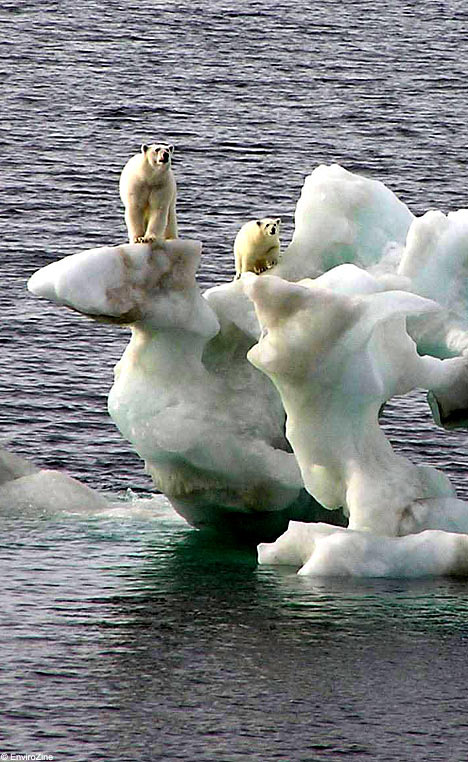 More than 100 years ago, people around the world began to burn more coal and oil for homes, factories and transportation. Burning these fossil fuels releases carbon dioxide and other greenhouse gases in the atmosphere. These greenhouse gases are said to have caused the Earth to warm more rapidly than in the past.
More than 100 years ago, people around the world began to burn more coal and oil for homes, factories and transportation. Burning these fossil fuels releases carbon dioxide and other greenhouse gases in the atmosphere. These greenhouse gases are said to have caused the Earth to warm more rapidly than in the past.How much warming has happened? Scientists around the world with the Intergovernmental Panel on Climate Change (IPCC) tells us that over the past 100 years, the higher the temperature at the surface of the world average of 0.6 degrees (1,1 ° F). This may not seem to change much, but the degree can affect the Earth. Here are some of the effects of climate change we see happening now.
Sea levels are rising. In the 20 th century sea levels rose by about 15 centimeters (6 inches) of ice melting glaciers and the expansion of marine hot water. The models predict that sea levels could rise by 59 cm (23 inches) during the 21 th century, threatening coastal communities, wetlands and coral reefs.
Arctic sea ice melts. The thickness of sea ice in summer is about half that in 1950. Melting ice could lead to changes in ocean circulation. Plus, melting sea ice is accelerating global warming in the Arctic.
Glaciers and permafrost is melting. Over the past 100 years, the glaciers of the mountain in all regions of the world, decreased in size and, thus, the number of permanent ice in the Arctic.Greenland ice sheet is melting faster.
Sea-surface temperature warming. Warm water in the ocean below led to the deaths of about a quarter of coral reefs in the world in recent decades. Many animals died after the weakened coral bleaching, a process associated with heated water.
Rains cause flooding in many regions. Increasing temperature leads to more intense precipitation events in some areas. This can lead to flooding.
Extreme drought is increasing. Increase in temperature leads to an increase in the rate of evaporation and drier in some parts of the world.
Ecosystems are changing. High temperatures, species can move to a cooler habitat or die.Species that are particularly vulnerable are endangered species, coral reefs and polar animals.The warming also causes changes in the calendar of events of spring and the length of the growing season.
Hurricanes have changed in frequency and strength. There is evidence that the number of Atlantic hurricanes has increased since 1970. Scientists continue to study whether the time this case.
More frequent heat waves. It is likely that heat waves become more frequent in those areas of the world.
High temperatures on human health. There were more deaths from heat waves and more attacks as the allergy season, pollen above. There were also some changes in the range of animals that are disease vectors such as mosquitoes.
Sea water becomes more acidic. Carbon dioxide dissolves in the ocean, making sea water more acidic. There may be impacts on coral reefs and other marine species.
No comments:
Post a Comment